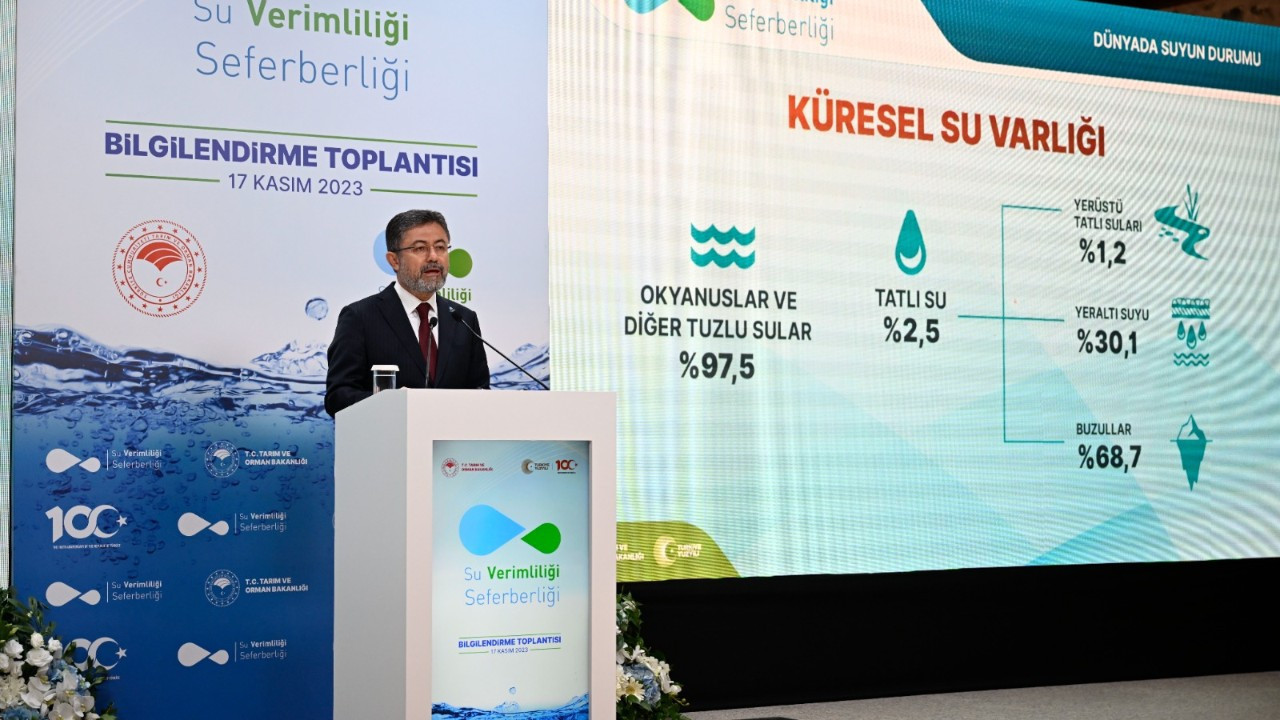Over 30 pct of Turkey’s provinces face high climate risk, expert report reveals
Some 36 of Turkey's 81 provinces were under a very high climate risk, according to the report prepared by expert Duygu Bütün. Istanbul, Ankara, Kayseri, Mersin, and Gaziantep provinces have been the most risky provinces to suffer from both temperature increase and drought.
Duvar English
Some 36 out of Turkey's 81 provinces were classified as being at “high” or “very high” risk due to changing climate factors, according to a report prepared by Duygu Bütün, an architect and urban and regional planning expert, as reported by online news outlet Haber Global.
Last February was the hottest one ever recorded worldwide. The report revealed that the temperatures continued to increase throughout Turkey and drew attention to the fact that “tropical nights” have been experienced in coastal cities even in winter.
The tropical night is used to describe a night when the temperature does not fall below 20 °C.
The provinces facing the highest risk of climate change included Amasya and Tokat in Black Sea; Mersin and Kahramanmaraş in Mediterranean; Kayseri in Central Anatolia; Muş and Ağrı in Eastern Anatolia.
Istanbul, the capital Ankara, Kayseri, Mersin, and Gaziantep in Southeastern Anatolia were singled out as the most vulnerable cities to both temperature increase and drought.
The report underscored that Istanbul, Ankara, Kayseri, and Gaziantep, with a combined population exceeding 21 million, were areas where vulnerable populations, including children, the elderly, low-income groups, and those under temporary protection status, are particularly sensitive to climate change.
Especially the southeastern provinces with low adaptive capacity have high vulnerability to drought.
Trabzon, Rize, and Giresun in the Black Sea were highlighted for facing the highest flood risk among provinces. More than 855,000 inhabitants, an airport, 11 power plants, and 273 hospitals are at risk of flooding in the Black Sea region.
The report also yielded overlapping results with the report titled "Sea Level Rise and Its Possible Effects," which revealed that the coasts of Istanbul and Izmir would be flooded in 2050.
The report drew attention to the fact that increasing heat waves would lead to production losses, infrastructure damages, and decreased yields across the country. In Turkey, 46 percent of threatened species listed by the International Union for Conservation of Nature (IUCN) Red List of Threatened Species were found in 30 high-risk provinces.
The report underscored that Istanbul, Ankara, Kayseri, and Gaziantep were four provinces with a very high risk of heatwaves These cities, with a total population exceeding 21 million, have been home to vulnerable populations—children, the elderly, low-income groups, and those under temporary protection status—who are particularly sensitive to climate change.

 Captive animals in Turkey’s zoo cannot hibernate due to extreme heatEnvironment
Captive animals in Turkey’s zoo cannot hibernate due to extreme heatEnvironment Turkey to be classified as highly water-stressed country by 2030, minister saysEnvironment
Turkey to be classified as highly water-stressed country by 2030, minister saysEnvironment Turkey marks warmest, rainiest November in decadesEnvironment
Turkey marks warmest, rainiest November in decadesEnvironment